If your pregnancy is high-risk, you or your unborn child may be more susceptible to health issues before, during, or after birth. Usually, during pregnancy, particular observation or care is required. You can recognize the risk factors for a high-risk pregnancy and protect yourself and your unborn child.
Navigating a High-Risk Pregnancy
A medical issue that existed before becoming pregnant might cause a high-risk pregnancy. In some cases, a pregnancy may become high risk due to a medical condition that manifests itself while you are pregnant. Specifically, the following may increase the chance of a high-risk pregnancy:
- Older maternal age: Women over 35 have an increased likelihood of experiencing complications while pregnant.
- Lifestyle: Pregnancy risk factors include consuming illicit substances, drinking alcohol, and smoking cigarettes.
- Health conditions: Pregnancy risks can be raised by high blood pressure, obesity, diabetes, epilepsy, thyroid illness, blood or heart conditions, poorly managed asthma, and infections.
- Complications during pregnancy: There are hazards associated with several pregnancy problems. Examples include atypical placental positioning, fetal development below the 10th percentile for gestational age, and rhesus sensitization. This potentially dangerous condition can develop when your blood type is Rh negative, and your unborn child is Rh positive.
- Multiples: Women bearing multiple fetuses have increased pregnancy risks.
Preeclampsia and other hypertensive problems associated with pregnancy enhance the likelihood of developing this condition in a subsequent pregnancy. You have a higher chance of giving birth early in your subsequent pregnancies if you gave birth prematurely during your previous pregnancy or have had many preterm deliveries. Tell your doctor all you know about your entire obstetrical history. A high-risk pregnancy is not guaranteed to be more complicated than a low-risk pregnancy. However, it occasionally implies that you may require more monitoring and consultation with an expert in maternal-fetal medicine than a woman with a low-risk pregnancy.
If you have one high-risk pregnancy, it does not follow that all subsequent pregnancies will also be high-risk. You could experience a fetal problem in one pregnancy but not another, and your health might vary over time. However, your likelihood of experiencing preterm labor during your subsequent pregnancy increases if your previous pregnancy results in an early birth. If this happens, your obstetrician will manage your pregnancy with medication, and a maternal-fetal medicine expert will use ultrasound monitoring to keep track of your cervical length.
You can be hospitalized or placed on bed rest at home. Thanks to noninvasive fetal monitoring, healthcare professionals can safely and continuously monitor your baby’s heart rate and the frequency of any contractions you may have in the hospital. In all scenarios, bed rest may assist you in having a higher chance of maintaining a safe pregnancy.
Help With Your High-Risk Pregnancy Can be Found at Rosenberg Maternal-Fetal Medicine.
Healthcare doesn’t need to be challenging. We’re always looking for ways to simplify things so you can get better and remain better. Also, remember that Rosenberg Maternal-Fetal Medicine’s priority is for you to experience a safe, joyful pregnancy and deliver a healthy baby; for information on our Hewlett, NY location, call (516) 501-9840. Or you may phone our Suffern, New York office at (845) 764-9880.

